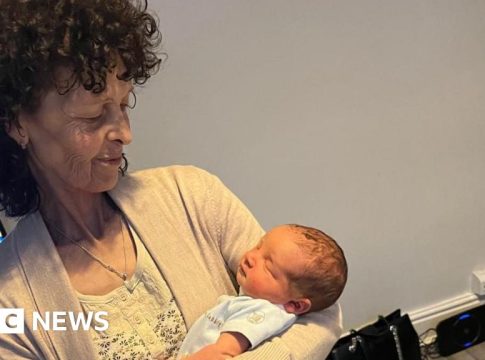Understanding Gambling Addiction: A Compassionate Perspective
Gambling addiction can quietly weave its way into families, leaving devastation in its wake. For many, like the individual featured in a recent BBC article, the consequences are profoundly personal and heart-wrenching. Their journey sheds light on the struggles endured by families affected by this pervasive issue.
The Ripple Effect of Gambling Addiction
At its core, gambling addiction is more than just a personal struggle; it can strain relationships, finances, and emotional well-being. In this instance, a family member’s gambling behavior resulted in significant financial losses that impacted the entire familial unit, including a sick mother whose care depended on stability and resources.
When gambling becomes a compulsion, it often leads to a cycle of debt, secrecy, and shame. Understanding this cycle can help us approach the situation with empathy rather than judgment. Gamblers may believe they can recoup their losses, but the reality often spirals deeper into financial distress and emotional turmoil.
Recognizing the Signs
Identifying gambling addiction is crucial for timely intervention. Here are some common signs to be aware of:
- Preoccupation with Gambling: Constantly thinking about gambling or planning the next opportunity can indicate a deeper issue.
- Chasing Losses: Feeling compelled to gamble more to recover lost money is a classic symptom of addiction.
- Neglecting Responsibilities: Leaving important tasks or relationships behind in favor of gambling activities is a telling sign.
- Secrecy: Hiding gambling behaviors from family and friends can lead to isolation and increased anxiety.
It’s important to note that anyone can be affected by gambling addiction, regardless of their background or financial status.
Steps Towards Healing
For families grappling with the fallout of gambling addiction, compassion and understanding are essential. Here are some ways to foster healing within the family unit:
-
Open Dialogue: Encourage discussions about gambling and its impact without assigning blame. Compassionate conversations can pave the way for understanding and support.
-
Seek Professional Help: Therapists and support groups like Gamblers Anonymous provide crucial resources for both the individual struggling with addiction and their loved ones.
-
Establish Boundaries: Protecting oneself emotionally and financially is vital. Setting clear boundaries around financial resources can help in preventing further harm.
- Focus on Self-Care: For family members, leaning on support networks and prioritizing self-care contributes to emotional resilience.
A Path Forward
Raising awareness and fostering understanding around gambling addiction can create a supportive environment for recovery. As we learn from poignant stories like that shared by the individual in the article, we can recognize the importance of empathy, communication, and professional support.
This journey may be fraught with challenges, but recovery and healing are possible. Empowering ourselves and our loved ones begins with compassion—both for ourselves and others.
By taking small, thoughtful steps, we can navigate the complexities of gambling addiction together, creating a path toward brighter futures for those affected.

Covers wellness, nutrition, mental health, and daily life tips.
Bio: Talia brings a background in health journalism and holistic living to help readers live better, one tip at a time.

